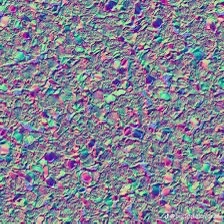Madadreferencearchive - Just A Reference


More Posts from Madadreferencearchive and Others

https://mamot.fr/@setthemfree/106014810050613790
https://www.eff.org/deeplinks/2021/03/google-testing-its-controversial-new-ad-targeting-tech-millions-browsers-heres
Hey i’m a fashion design student so i have tons and tons of pdfs and docs with basic sewing techniques, pattern how-tos, and resources for fabric and trims. I’ve compiled it all into a shareable folder for anyone who wants to look into sewing and making their own clothing. I’ll be adding to this folder whenever i come across new resources
https://drive.google.com/drive/folders/16uhmMb8kE4P_vOSycr6XSa9zpmDijZSd?usp=sharing
filterable picrew database!
hey pals!! i'm working on a filterable, tagged collection of picrew i like. right now there's about 60 picrew (and other such makers such as those from neka or meiker) in there with tags for things like fashion, hair options, skin colors, specific features like horns or headscarves, and body types. you can search for multiple tags at a time and filter out tags you don't want. the whole thing is organized in a big grid of sample results from the picrew in question, so you can see the style at a glance and click it for more images and the url, but you can change the view and organization system however you like.




the link is here!!! feel free to share this wherever. i'm still going through my folders and adding more makers, so expect lots of updates real soon.
i'm hoping this makes it easier for people to find picrew that suit them and their characters, especially in cases where it's unfortunately harder to find certain features like dark skin options and fat bodies.
have fun!!!! i hope this is helpful for people!!!
AI disturbance overlays for those who don't have Ibis paint premium. found them on tiktok






university is like a video game. you can pick up sidequests. Youre gonna neglect the main storyline. youre gonna end up in a guild of sorts. i just looted a bush on campus and found a sticker
Want to learn something new in 2022??
Absolute beginner adult ballet series (fabulous beginning teacher)
40 piano lessons for beginners (some of the best explanations for piano I’ve ever seen)
Excellent basic crochet video series
Basic knitting (probably the best how to knit video out there)
Pre-Free Figure Skate Levels A-D guides and practice activities (each video builds up with exercises to the actual moves!)
How to draw character faces video (very funny, surprisingly instructive?)
Another drawing character faces video
Literally my favorite art pose hack
Tutorial of how to make a whole ass Stardew Valley esque farming game in Gamemaker Studios 2??
Introduction to flying small aircrafts
French/Dutch/Fishtail braiding
Playing the guitar for beginners (well paced and excellent instructor)
Playing the violin for beginners (really good practical tips mixed in)
Color theory in digital art (not of the children’s hospital variety)
Retake classes you hated but now there’s zero stakes:
Calculus 1 (full semester class)
Learn basic statistics (free textbook)
Introduction to college physics (free textbook)
Introduction to accounting (free textbook)
Learn a language:
Ancient Greek
Latin
Spanish
German
Japanese (grammar guide) (for dummies)
French
Russian (pretty good cyrillic guide!)
This database holds a ton of useful materials for embroidery! many different types of stitches in various difficulties, all incredibly useful!


Dictatus Papae: Principles of the Papacy in the 11th Century
*My (amateur) attempt at proving the articles of Pope Gregory VII*
Article I: The Roman Church was founded by God alone.
The proof for this is well known; found in the Gospel according to Matthew 16:16-19:
Simon Peter answered and said: Thou art Christ, the Son of the living God. And Jesus answering said to him: Blessed art thou, Simon Bar-Jona: because flesh and blood hath not revealed it to thee, but my Father who is in heaven. And I say to thee: That thou art Peter; and upon this rock I will build my church, and the gates of hell shall not prevail against it. And I will give to thee the keys of the kingdom of heaven. And whatsoever thou shalt bind upon earth, it shall be bound also in heaven: and whatsoever thou shalt loose on earth, it shall be loosed also in heaven.
And further: we read from Lactantius in his On the Manner in Which the Persecutors Died:
And while Nero reigned, the Apostle Peter came to Rome, and, through the power of God committed unto him, wrought certain miracles, and, by turning many to the true religion, built up a faithful and steadfast temple unto the Lord.
Article II: The Roman Pontiff alone can with right be called "Universal".
Pope Saint Gregory the Great could not be more clear on this point in his letter (Book 5 Letter 18) to John the Faster:
Was it not the case, as your Fraternity knows, that the prelates of this Apostolic See which by the providence of God I serve, had the honour offered them of being called universal by the venerable Council of Chalcedon. But yet not one of them has ever wished to be called by such a title, or seized upon this ill-advised name, lest if, in virtue of the rank of the pontificate, he took to himself the glory of singularity, he might seem to have denied it to all his brethren.
Article III: He alone can depose or reinstate bishops.
As to to the former proposition (that of deposing) we have recourse to Constantinople IV (869):
We, however, follow and embrace the holy synod that Pope Nicholas of blessed memory conducted before the most sacred body of Peter, pre-eminent among the apostles, to which you yourself, the coangelic and supreme pontiff Hadrian, subscribed, and also the one that you yourself lately held. In accordance with the ruling of your decree we shall observe with the greatest respect all the statutes of these synods, receiving those they receive and condemning all whom they condemned, especially the aforementioned Photius and Gregory of Syracuse, those parricides who did not fear to exercise their tongues against their spiritual father. And we judge that all who persevere in schism, both their followers and those who remain in the fellowship of their communion, are as unworthy as they are of the grace of communion, if they do not obey you. For whoever joins himself to their communion has deserved the same sentence as they received, whether of acquittal or condemnation.
As to the latter proposition (that of reinstating) we see the Greek version of Canon 3 of the Synod at Serdica:
But if perchance sentence be given against a bishop in any matter and he supposes his case to be not unsound but good, in order that the question may be reopened, let us, if it seem good to your charity, honour the memory of Peter the Apostle, and let those who gave judgment write to Julius, the bishop of Rome, so that, if necessary, the case may be retried by the bishops of the neighbouring provinces and let him appoint arbiters; but if it cannot be shown that his case is of such a sort as to need a new trial, let the judgment once given not be annulled, but stand good as before.
And moreover we read in Pope John VIII’s letter to the Emperor Basil I:
For even the legates of the Apostolic See who were sent to Constantinople by our predecessor, the eminent Pontiff Hadrian, gave their well considered assent to the synod held there 'with the approval of their Pontiff', nor did they wish to remain severed from the Apostolicus [the Pope], since the See of St Peter, the key-bearer of the heavenly kingdom, has after due consideration power to absolve prelates from all ties. It is well known that many Patriarchs, Anastasius and Cyril of Alexandria, Flavianus and John of Constantinople and Polychronius of Jerusalem, who were condemned by synods, were promptly acquitted and reinstated by the Apostolic See.
Article IV: In council, his Legate, even if a lower grade, is above all bishops and can pass sentence of deposition against them.
A priest by the name of Boniface represented Pope Leo at the Council of Chalcedon. In the opening announcements, Boniface is cited prior to the Patriarch of Constantinople, Saint Anatolius, as if he was in the place of the Roman Pontiff himself. Ergo, etc.
Later, the Patriarch Dioscorus I of Alexandria was deposed on the authority of Boniface acting as Legate of the Apostolic See.
Article V: The Pope may depose the absent.
Pope Saint Zosimus condemns Caelestius in Letter 45 after Caelestius fled Rome.
Article VI: Among other things, we ought not to remain in the same house with those excommunicated by him.
If the previous articles are true, then, therefore etc.
Article VII: For him alone is it lawful, according to the needs of the time, to make new laws, to assemble together new congregations, to make an abbey of a canonry, and, on the other.
The papal priveleges of Sylvester II, in which we read of his establishing a monastery on the Authority of Peter:
If anyone, by rash boldness, however, shall attempt to contravene this document of our apostolic confirmation, though this seems impossible, let him be advised that he will have been held fast by the chain of the anathema of Our Lord [and] " of Peter, prince of the apostles, to be consumed in the everlasting fire with the devil and his most vicious retinue, and also with Judas, betrayer of Our Lord and Savior Jesus Christ, sent down into the Tartarean depths to perish with the wicked. May he who is, indeed, the guardian and respecter of this our privilege receive the grace of benediction and eternal life from the Lord.
Article VIII: He alone may use the Imperial Insignia.
This article was actually directly derived from the famous forgery of the Donation of Constantine:
And when, the blessed Sylvester preaching them, I perceived these things, and learned that by the kindness of St. Peter himself I had been entirely restored to health: I together with all our satraps and the whole senate and the nobles and all the Roman people, who are subject to the glory of our rule -considered it advisable that, as on earth he (Peter) is seen to have been constituted vicar of the Son of God, so the pontiffs, who are the representatives of that same chief of the apostles, should obtain from us and our empire the power of a supremacy greater than the earthly clemency of our imperial serenity is seen to have had conceded to it,-we choosing that same prince of the apostles, or his vicars, to be our constant intercessors with God. And, to the extent of our earthly imperial power, we decree that his holy Roman church shall be honoured with veneration; and that, more than our empire and earthly throne, the most sacred seat of St. Peter shall be gloriously exalted; we giving to it the imperial power, and dignity of glory, and vigour and honour.
However, I would argue we see this concept manifest very clearly by at least the 5th century. In Pope Saint Leo the Great’s famous letter to Flavian (“the Tome of Leo”) and in Pope Saint Gelasius’ letter to Anastasius Augustus. In which both saintly Roman Pontiffs used the term “auctoritas” to describe their authority. Here is Anglican historian, Dr. Trevor Jalland describing Gelasius’ use of the word in his lecture series entitled Church and Papacy:
Here lies a distinction familiar to students of Roman constitutional law. Auctoritas belonged to the ideal and moral sphere, and just because its force was derived from tradition or from public opinion, it was strictly an ethical concept, as in the case of the Roman Senate, and so differed from the physical potestas endowed with executive imperium, which in the republican period belonged to the populus and was entrusted to the magisttrates only for the period of their office. There was therefore a clear though undefined sense in which auctoritas if compared with potestas could be regarded as the higher of the two, just as moral influence is superior to physical force.
Article IX: All princes shall kiss the feet of the Pope alone.
Evidence for this is found in the second volume of Duchesne’s Liber Pontificalis, which I don’t have access to in English and the scanned Latin is horrible on archive. The quote, as I gathered from elsewhere, supposedly reads as such:
The unanimous Senate then came to kiss his [Pope Valentine] feet with respect and great restraint.
Article X: His name alone shall be spoken in the churches.
Council of Vaison, Canon IV:
It also seemed right to us that the name of the Lord Pope, who at the time will preside over the Apostolic See, be mentioned in our churches.
Article XI: This is the only name in the world.
Follows logically from articles II and X when understood properly.
Article XII: It may be permitted to him to depose emperors.
From the Life of Charlemagne by Einhard the Stammerer:
But Pippin, after he was made King instead of Mayor of the Franks by the authority of Roman Pontiff, exercised sole rule over the Franks for fifteen years…
And Pope Hadrian’s letter to Lotharingia to support the ascent of Louis II:
Therefore, with the apostolic trumpet we warn and with celestial authority we advise Your Loves, most beloved of the Lord's Son, that for the stability of the realm you should now generally take great care to act in all matters concerning our most beloved and spiritual son, the august lord emperor Louis, with the same faith and sincerity of mind which you preserved in your pure hearts for the former emperor Lothar I his father. May no mortal man, no matter what his dignity or glory, be able to call you back by any means or argument from the precept and healthy counsel of the apostolic see, or turn you aside from the path of truth. Nor may you hasten to listen eagerly to anyone's precepts more than to those of the Apostle Peter, pronounced by our lips, which are more useful to you.
This article also flows logically from the breakdown of Pope Saint Leo and Pope Saint Gelasius’ remarks above.
Article XIII: It may be permitted to him to transfer bishops, if need be.
Gerbert of Aurillac was Bishop of Rheims before being deposed by Pope John XV. He was then made Bishop of Revenna by Pope Gregory V shortly before he himself was elected to the papacy as Sylvester II. This sort of thing was common, particularly in France and and Isles.
Article XIV: He has the power to ordain the clerk of any parish he wishes.
Fr. Richard Price summarizes Letter 9 from Pope Saint Martin in his Acts of the Lateran Synod of 649:
To the churches of Jerusalem and Antioch (PL 87. 175-9). Martin communicates the substance of the synod's decrees - its dyenergist and dyothelete definitions and its condemnation of Sergius, Pyrrhus and Paul of Constantinople. Those addressed are the bishops, clergy, monks and laity of the patriarchates of Jerusalem and Antioch, since (as the letter states) Martin refused to recognise the two oriental patriarchs at this date loyal to Chalcedon (Macedonius of Antioch and Peter of Alexandria, both probably resident in Constantinople) because of their acceptance of the Typos; this he gives as the grounds for his mandating John of Philadelphia, as his representative, to ordain bishops and priests.
This Synod was upheld ecumenically at Constantinople III.
Article XV: He who is ordained by the Pope may preside over another church, but may not hold a subordinate position. Such a person may not receive a higher clerical grade from any other bishop.
Origen’s ordination, and the subsequent crashout of Patriarch Demetrius, proves this if the previous articles are correct.
Article XVI: No synod shall be called a 'General Synod' without his order.
Second Council of Nicaea:
and, moreover, I should demand that an Ecumenical Council should be held, at which should be found Legates from the Pope of Rome and from the Chief Priests of the East.
Article XVII: No chapter and no book shall be considered canonical without his authority.
Canon XXI of the Synod of Tours:
Which among the bishops would dare go against the decretals issued by the Apostolic See? [...] And whose preaching can carry authority, if not those whom the Apostolic See has always received or has not counted among the apocrypha? Our Fathers have always observed what the authority of these men prescribed. Therefore we too, following in their footsteps, decree to observe hat both the Apostle Paul and Pope Innocent have prescribed, inserting it into our canons: namely, that no one may dare to take away, seize, or marry either a virgin consecrated to God, or a widow, or a young girl who has changed her clothing in honor of Christ.
Article XVIII: A sentence passed by him may be retracted by no one. He alone may retract it.
Pope Saint Leo the Great’s annulment of Canon XXVIII at Chalcedon:
As for the resolution of the bishops which is contrary to the Nicene decree, in union with your faithful piety, I declare it to be invalid and annul it by the authority of the holy apostle Peter
The Bishops at Chalcedon:
After the reading of the foregoing epistle [The Tome of Leo], the most reverend bishops cried out: ‘This is the faith of the fathers! This is the faith of the apostles! So we all believe! Thus the orthodox believe! Anathema to him who does not thus believe! Peter has spoken thus through Leo! . . . This is the true faith! Those of us who are orthodox thus believe! This is the faith of the Fathers!
Article XIX: He himself may be judged by no one.
Pope Saint Nicholas I writing to the Emperor Michael III:
Furthermore, if you do not listen to us [Rome], it remains that you be held by us as our Lord Jesus Christ enjoins us to hold those who refuse to hear the Church of God; especially since the privileges of the Roman Church confirmed in St. Peter by the words of Christ, ordained in the Church itself, observed from of old, proclaimed by the holy universal synods and ever venerated by the whole Church, can by no means be diminished, infringed, or altered, since no effort of man has power to remove a foundation which God has laid, and what God has established stands firm and unshakable…These privileges, then, were bestowed on this holy Church by Christ: they were not bestowed by the Synod but were merely proclaimed and held in veneration by them...it is immediately clear that the judgments of the Apostolic See, than which there is no greater authority, cannot be handled by any other tribunal, nor is it permissible for any to sit in judgement upon its decision…
And Pope Saint Gelasius from the Patralogia Latina:
and thus he [the Pope] judges the whole Church and himself stands before no tribunal and no judgment can be passed on his judgment, nor can his decision be abrogated
Article XX: No one shall dare to condemn any person who appeals to the Apostolic Chair.
This follows logically from even the appellate jurisdiction granted to Rome by eastern orthodox historians and apologists. Famous examples of this are Ss Athanasius and Peter of Alexandria, Saint Jerome, Saint Maximus the Confessor, and many others.
Article XXI: The more important cases of every church should be referred to the Apostolic See.
Ibid.
Article XXII: The Roman Church has never erred. Nor will it err, to all eternity - Scripture being witness.
We see this attested to no less than 3 times in the same letter of Pope Saint Agatho to the Third Council of Constantinople:
For this is the rule of the true faith, which this spiritual mother of your most tranquil empire, the Apostolic Church of Christ, has both in prosperity and in adversity always held and defended with energy; which, it will be proved, by the grace of Almighty God, has never erred from the path of the apostolic tradition, nor has she been depraved by yielding to heretical innovations, but from the beginning she has received the Christian faith from her founders, the princes of the Apostles of Christ, and remains undefiled unto the end, according to the divine promise of the Lord and Saviour himself, which he uttered in the holy Gospels to the prince of his disciples: saying, Peter, Peter, behold, Satan has desired to have you, that he might sift you as wheat; but I have prayed for you, that (your) faith fail not. And when you are converted, strengthen your brethren. Let your tranquil Clemency therefore consider, since it is the Lord and Saviour of all, whose faith it is, that promised that Peter's faith should not fail and exhorted him to strengthen his brethren, how it is known to all that the Apostolic pontiffs, the predecessors of my littleness, have always confidently done this very thing: of whom also our littleness, since I have received this ministry by divine designation, wishes to be the follower, although unequal to them and the least of all.
…because the true confession thereof for which Peter was pronounced blessed by the Lord of all things, was revealed by the Father of heaven, for he received from the Redeemer of all himself, by three commendations, the duty of feeding the spiritual sheep of the Church; under whose protecting shield, this Apostolic Church of his has never turned away from the path of truth in any direction of error, whose authority, as that of the Prince of all the Apostles, the whole Catholic Church, and the Ecumenical Synods have faithfully embraced, and followed in all things; and all the venerable Fathers have embraced its Apostolic doctrine, through which they as the most approved luminaries of the Church of Christ have shone; and the holy orthodox doctors have venerated and followed it, while the heretics have pursued it with false criminations and with derogatory hatred.
Therefore the Holy Church of God, the mother of your most Christian power, should be delivered and liberated with all your might (through the help of God) from the errors of such teachers, and the evangelical and apostolic uprightness of the orthodox faith, which has been established upon the firm rock of this Church of blessed Peter, the Prince of the Apostles, which by his grace and guardianship remains free from all error, [that faith I say] the whole number of rulers and priests, of the clergy and of the people, unanimously should confess and preach with us as the true declaration of the Apostolic tradition, in order to please God and to save their own souls.
Article XXIII: The Roman Pontiff, if he has been canonically ordained, is undoubtedly made a saint by the merits of St. Peter, St. Ennodius Bishop of Pavia bearing witness, and many holy fathers agreeing with him. As it is contained in the decrees of Pope St. Symmachus.
This is the only article I think is actually incorrect, unless we add in the caveat of “without any impediments of mortal sin” as I have seen some do but I believe that goes against the spirit of the article. I believe this is based on the Symmachean forgeries and I have no document saying as much from Saint Ennodius.
Article XXIV: By his command and consent, it may be lawful for subordinates to bring accusations.
This is just true.
Article XXV: He may depose and reinstate bishops without assembling a Synod.
Refer back to Article III.
Article XXVI: He who is not at peace with the Roman Church shall not be considered 'catholic'.
This is most notably seen in the writings of Saint Optatus against the Donatists:
So we have proved that the Catholic Church is the Church spread throughout the world. We must now mention its adornments…
and further:
...and see where are its five endowments, among which the cathedra is the first, and since the second endowment, which is the angelus, cannot be added unless a Bishop has sat on the cathedra, we must see who was the first to sit on the cathedra, and where he sat. If you don't know this, learn. If you do know, blush. Ignorance cannot be attributed to you — it follows that you know. For one who knows, to err is sin. Those who do not know may sometimes be pardoned. You cannot deny that you do know that upon Peter, first, in the city of Rome, was bestowed the episcopal cathedra, on which Peter sat, the Head of all the Apostles, that, in this one cathedra unity should be preserved by all, lest the other Apostles might claim - each for himself- separate cathedras, so that he who should set up a second cathedra against the unique cathedra would already be a schismatic and a sinner. Well then, on the one cathedra, which is the first of the endowments, Peter was the first to sit"
Article XXVII: He may absolve subjects from their fealty to wicked men.
It was difficult to find a direct example of this because in an any instance where this would be applicable, the Bishop of Rome would excommunicate or depose the authority figures in question; whether that be bishops, patriarchs, or sexular rulers as laid out in previous articles. The case of Saint Jerome taking refuge under Pope Saint Damasus is the closest direct example I could find with my cursory research. Another may be the letters to the Lotharingian nobles. In any case, I will leave this excerpt from Sozomen’s Ecclesiastical History:
...the Bishop of Rome, having investigated into the accusations of each [Athanasius, Paul of Cple, Marcellus of Ancyra, & Asclepas of Gaza), found them all agreeing with the Nicene synod, admitted them to communion, as agreeing with him. And insofar as the care of the universal church belonged to Pope Julius on account of the rank of his see, he restored each to his respective Church
Closing thoughts:
This is not meant to be a perfectly exhaustive list, it was merely my attempt at providing an individual example for each of the claims made. The length of the list and my own limitations prevent me from doing a more thorough treatment. Perhaps I will attempt something more comprehensive later on. Thank you for reading.
I’ve said this before and I’ll say it again but it is absolutely an example of civilizational inadequacy that only deaf people know ASL
“oh we shouldn’t teach children this language, it will only come in handy if they [checks notes] ever have to talk in a situation where it’s noisy or they need to be quiet”
-
 xxcerberusguardxx reblogged this · 3 days ago
xxcerberusguardxx reblogged this · 3 days ago -
 ugetwhatuget liked this · 3 days ago
ugetwhatuget liked this · 3 days ago -
 mangorosie reblogged this · 3 days ago
mangorosie reblogged this · 3 days ago -
 mangorosie liked this · 4 days ago
mangorosie liked this · 4 days ago -
 queenofosm liked this · 4 days ago
queenofosm liked this · 4 days ago -
 pylonswithme liked this · 4 days ago
pylonswithme liked this · 4 days ago -
 hannala reblogged this · 4 days ago
hannala reblogged this · 4 days ago -
 nabaath-areng liked this · 4 days ago
nabaath-areng liked this · 4 days ago -
 corpsecopse reblogged this · 4 days ago
corpsecopse reblogged this · 4 days ago -
 littleshitsofthefourthdimension liked this · 4 days ago
littleshitsofthefourthdimension liked this · 4 days ago -
 sententiousandbellicose reblogged this · 4 days ago
sententiousandbellicose reblogged this · 4 days ago -
 fazfactsimadeup reblogged this · 4 days ago
fazfactsimadeup reblogged this · 4 days ago -
 wildsparked reblogged this · 4 days ago
wildsparked reblogged this · 4 days ago -
 pinkestsorbet reblogged this · 4 days ago
pinkestsorbet reblogged this · 4 days ago -
 nixs liked this · 4 days ago
nixs liked this · 4 days ago -
 wingedpatrolunknown liked this · 5 days ago
wingedpatrolunknown liked this · 5 days ago -
 salem-doe liked this · 5 days ago
salem-doe liked this · 5 days ago -
 notevenmaybe liked this · 5 days ago
notevenmaybe liked this · 5 days ago -
 sonsick liked this · 5 days ago
sonsick liked this · 5 days ago -
 vanwater reblogged this · 5 days ago
vanwater reblogged this · 5 days ago -
 mcrdangerdays reblogged this · 5 days ago
mcrdangerdays reblogged this · 5 days ago -
 coldestcaress liked this · 5 days ago
coldestcaress liked this · 5 days ago -
 evisceratedarchangel reblogged this · 5 days ago
evisceratedarchangel reblogged this · 5 days ago -
 evisceratedarchangel liked this · 5 days ago
evisceratedarchangel liked this · 5 days ago -
 scienceandscribery liked this · 5 days ago
scienceandscribery liked this · 5 days ago -
 imarinext liked this · 6 days ago
imarinext liked this · 6 days ago -
 vodka-valntyne liked this · 6 days ago
vodka-valntyne liked this · 6 days ago -
 breadcrxmbs-reblogs reblogged this · 6 days ago
breadcrxmbs-reblogs reblogged this · 6 days ago -
 breadcrxmbs liked this · 6 days ago
breadcrxmbs liked this · 6 days ago -
 ratsongs liked this · 6 days ago
ratsongs liked this · 6 days ago -
 danimoonstarr reblogged this · 6 days ago
danimoonstarr reblogged this · 6 days ago -
 vvlpecvlae liked this · 6 days ago
vvlpecvlae liked this · 6 days ago -
 joyandcrown liked this · 6 days ago
joyandcrown liked this · 6 days ago -
 k-a-a123 liked this · 6 days ago
k-a-a123 liked this · 6 days ago -
 lovingbeing reblogged this · 6 days ago
lovingbeing reblogged this · 6 days ago -
 actiasluna reblogged this · 6 days ago
actiasluna reblogged this · 6 days ago -
 lovingbeing reblogged this · 6 days ago
lovingbeing reblogged this · 6 days ago -
 lovingbeing liked this · 6 days ago
lovingbeing liked this · 6 days ago -
 spoopy-metroid reblogged this · 6 days ago
spoopy-metroid reblogged this · 6 days ago -
 amiko-pan reblogged this · 6 days ago
amiko-pan reblogged this · 6 days ago -
 hypatiatica reblogged this · 6 days ago
hypatiatica reblogged this · 6 days ago -
 khanger91 reblogged this · 6 days ago
khanger91 reblogged this · 6 days ago -
 megapoidgumi reblogged this · 6 days ago
megapoidgumi reblogged this · 6 days ago -
 goblinswamp reblogged this · 6 days ago
goblinswamp reblogged this · 6 days ago

Hey my main is mad-ad I use this side blog to keep posts I want to save handy and my drafts clear
76 posts